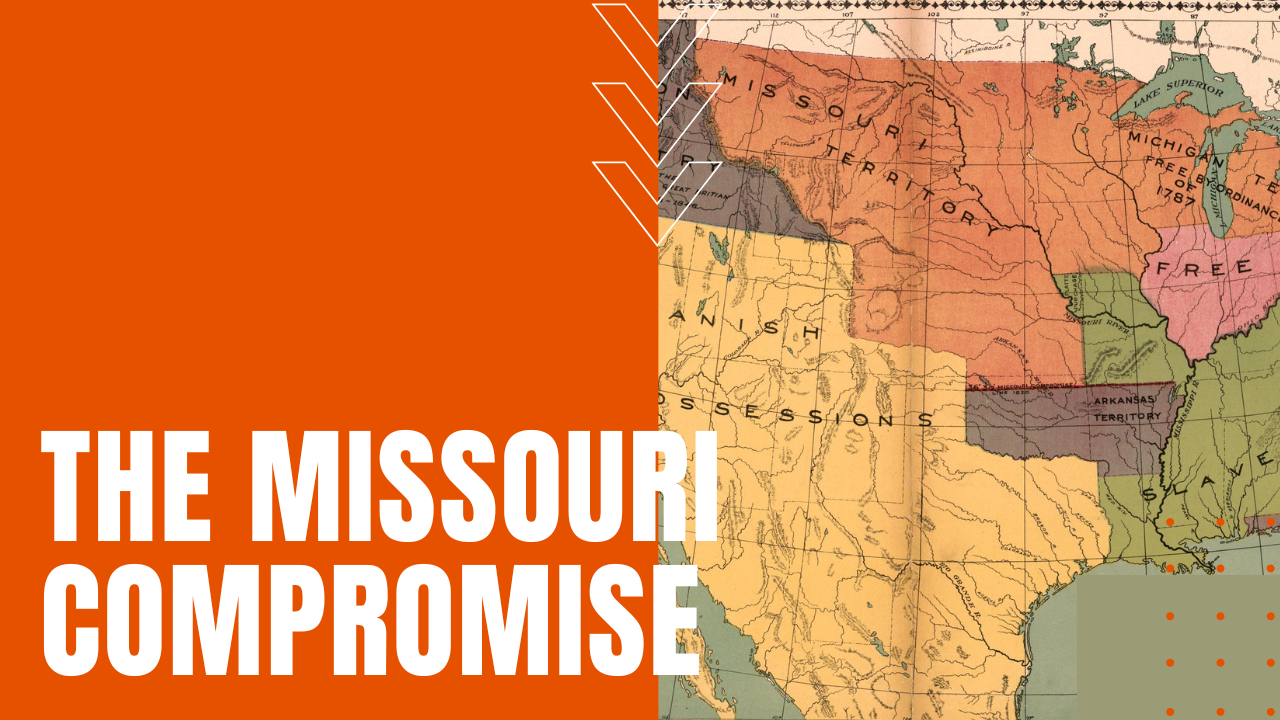The Missouri Compromise

In a young nation already deeply divided over the issue of slavery, when the Missouri Territory first applied for statehood in 1818, the desire by many in the territory to own slaves made it the first state west of the Mississippi River to consider slavery, upsetting an already teetering balance between slave and free states in Congress.
A Battle over Free and Slave States
During the contentious debate on Capitol Hill, New York Representative James Tallmadge proposed an amendment to Missouri’s statehood bill that would eventually end slavery in Missouri, which passed in the House of Representatives due to an anti-slavery majority, while the balanced numbers of pro and anti-slavery legislators in the Senate refused to pass the bill.
Tallmadge Amendment
When the Tallmadge Amendment returned to the House for revision, congressional representatives refused to grant Missouri statehood without it. When Missouri again sought statehood in late 1819, Speaker of the House Henry Clay proposed a compromise that allowed slavery in Missouri, at the same time admitting Maine as a free state.
Backroom Deals
To further entice anti-slavery legislators in Congress, in February of 1820, the Senate added a second compromise to Missouri’s statehood bill, which upheld slavery in Missouri while outlawing the practice in all lands acquired by the Louisiana purchase north of Missouri’s southernmost border. Signed into law by President James Monroe on March 6, 1820, former President Thomas Jefferson wrote in a letter to a friend that the “Missouri question…like a fire bell in the night, awakened and filled me with terror.
Only a Reprieve
I considered it at once as the knell of the Union. It is hushed indeed for the moment. But this is a reprieve only, not a final sentence.” While the Missouri Compromise managed to keep the peace for the next thirty years, as westward expansion continued to accelerate, when California petitioned for statehood in 1850, the Compromise of 1850 admitted California as a free state, while sending one pro-slavery senator to Washington to maintain the balance of power.
The Debate Continues
Four years later, during the organization of the Kansas and Nebraska Territories, the Kansas-Nebraska Act spearheaded by Illinois Senator Stephen Douglas, introduced the principle of popular sovereignty, which mandated that each new state should decide the issue of slavery on their own, sparking violence between pro and anti-slavery settlers now known as Bleeding Kansas, which also led to the formation of the Republican Party and the rise of a formerly unknown lawyer named Abraham Lincoln, making the Missouri Compromise, an early tourniquet on the issue of slavery as a nation crept ever closer toward Civil War.
